WITH Narendra Modi tipped to win a third term as India’s prime minister, there will probably be even greater interest in a new book, Hindu Nationalism in the Indian Diaspora: Transnational Politics and British Multiculturalism.
This is because the assertive Hindu nationalism – labelled as ‘Hinduvta’ – is associated with Modi’s ruling Bharatiya Janata Party (BJP) since he was first elected prime minister in 2014.
The 487-page book has been written by Dr Edward TG Anderson, 40, an assistant professor in history at Northumbria University, Newcastle.
His CV says he “works on the history and politics of modern and contemporary India and Britain. His research focuses on the Indian diaspora, transnational politics, religious nationalism, and British histories of migration, ethnicity, and multiculturalism.”
But Hinduvta, Anderson told Eastern Eye, predates Modi. He said the book has been a “work in progress for many years”.
“I studied history at university. And while I was a student, I became increasingly interested in the history and politics of India. I had a few teachers who taught courses on that. I also ended up spending some time in India. In fact, I studied in Delhi for a master’s degree. That was directly before my MPhil and PhD, which were based out of the Centre of South Asian Studies in Cambridge.”
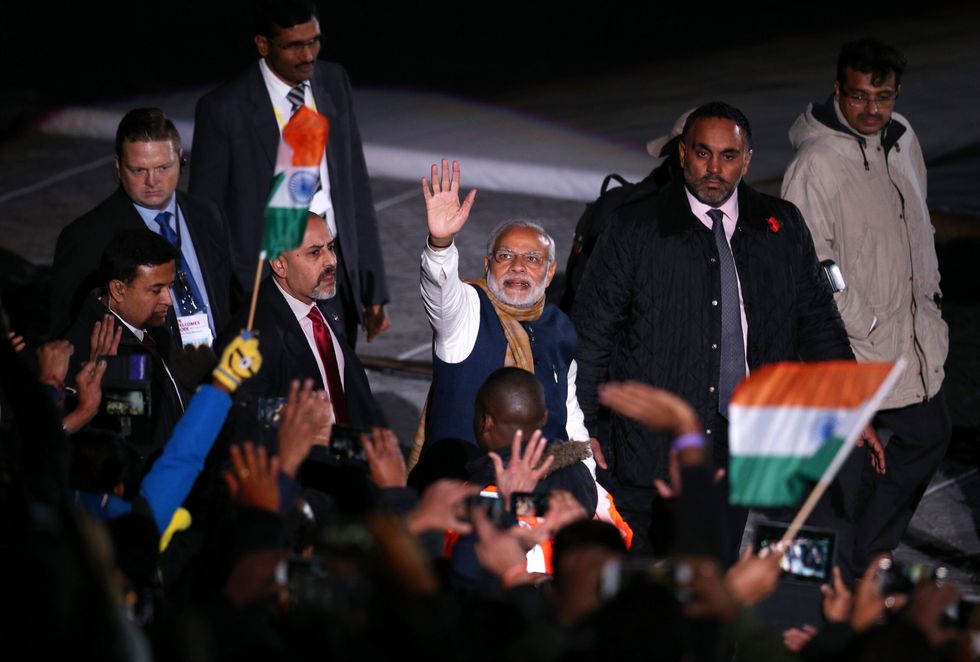
His PhD supervisor was the eminent Cambridge historian, professor Joya Chatterjee, to whom Anderson has acknowledged his debt: “It is hard to put into words the influence that Joya Chatterjee has had on my life. She is the most remarkable teacher, advocate and friend anyone could hope for.”
After his PhD, Anderson was the Smuts research fellow based at Trinity College, Cambridge, “which has these amazing connections with so many important people in the history of India, including, of course, Jawaharlal Nehru and (Srinivasa) Ramanujan, the mathematics genius. That longer picture of political connectivity between Indians in Britain and post-independence in India is something I’ve always been very interested in.”
Anderson is at pains to point out he is writing not about Hinduism, but about Hinduvta: “The two things are completely different and unconnected. But for some people, there is a politicisation of one’s cultural and religious identity.
He said, “I’ve got a very deep affection for the cultures of India. I’ve got a lot of personal connections in India and it’s a place I absolutely love.”
Anderson was not seeking to make value judgements about Hinduvta.
“But I would say there are various forms of populism and chauvinism that are causes for concern. I think it has been growing globally and in the UK over the last decade or so. The book is mainly about Britain. There’s evidence to show there are tensions between communities which have previously had good relations and expressed lots of solidarity (for each other). Certain forms of politics have eroded that solidarity and understanding.”
Asked if he was referring to the relationship between British Hindus and Muslims, he replied: “Not exclusively, but partly, yes.”
The book has been published by Hurst, which said Anderson “explores the remarkable rise and influence of Hindu nationalism in Britain and beyond”.
The publisher has tried to summarise the focus of Anderson’s research over a decade: “Hindu nationalism is transforming India as an increasingly dominant ideology and political force. But it is also a global phenomenon, with sections of India’s vast diaspora drawn to, or actively supporting, right-wing Hindu nationalism. Indians overseas can be seen as an important, even inextricable, aspect of the movement. This is not a new dynamic – diasporic Hindutva (‘Hindu-ness’) has grown over many decades.
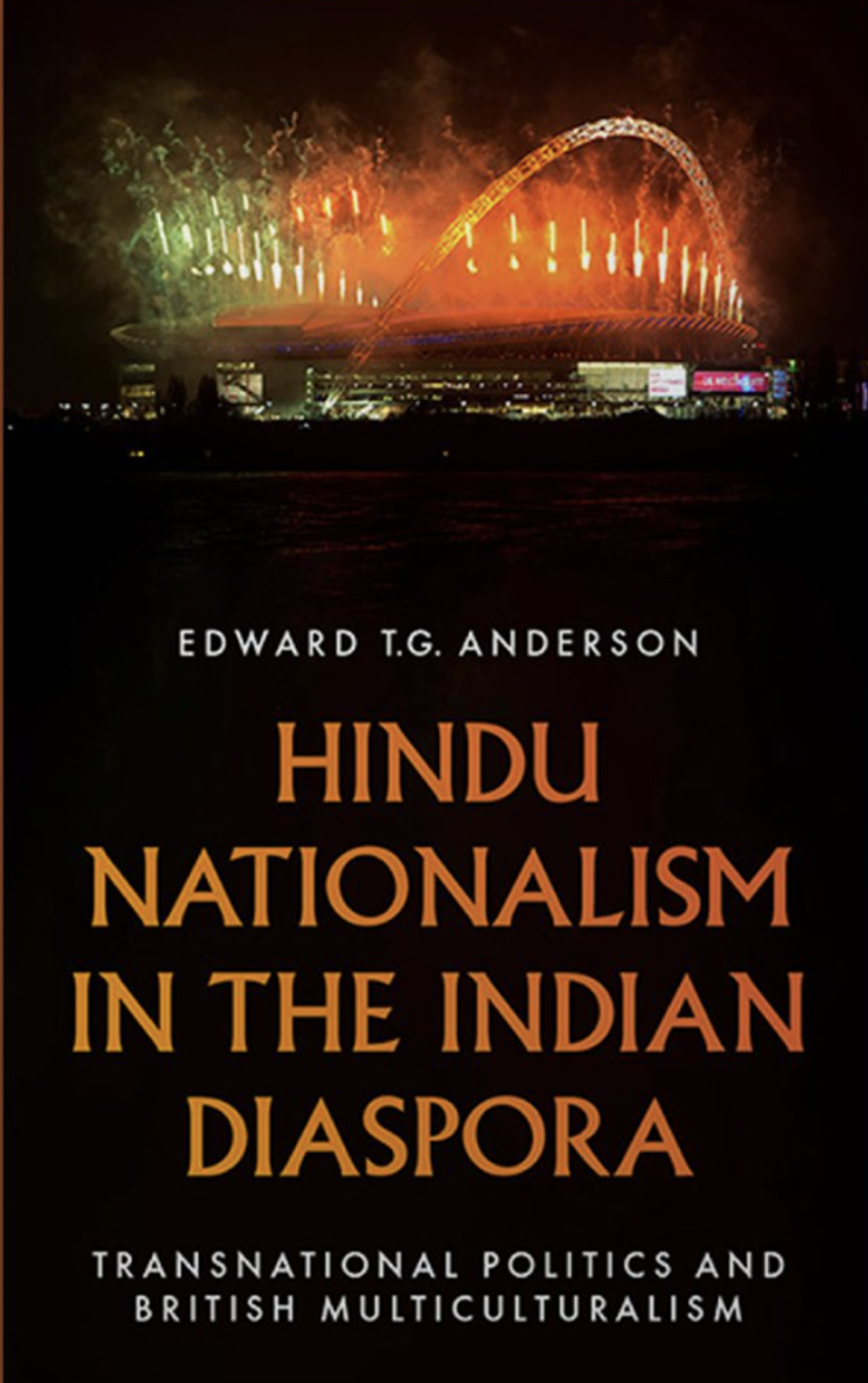
“This book explores how and why the movement became popular among India’s diaspora from the second half of the 20th century. It shows that Hindutva ideology, and its plethora of organisations, have a distinctive resonance and way of operating overseas; the movement and its ideas perform significant, particular functions for diaspora communities.
“With a focus on Britain, Edward TG Anderson argues that transnational Hindutva cannot simply be viewed as an export: this phenomenon has evolved and been shaped into an important aspect of diasporic identity, a way for people to connect with their homeland.
“He also sheds light on the impact of conservative Indian politics on British multiculturalism, migrant politics and relations between various minoritised communities. To fully understand the Hindutva movement in India and identity politics in Britain, we must look at where the two come together.”
Anderson told Eastern Eye his book is “about how and why the ideas and organisation connected with Hindu nationalism became popular among some members of the Indian diaspora from around the middle of the 20th century up until the present day. The point of the book is to understand why Hinduvta has become influential overseas, and the ways in which it resonates with members of the diaspora and how that form of ideology or politics affects the relationship that people have with their homeland.”
It is not always the case that Hinduvta is “exported” from India to the diaspora.
“One of the things I found is there are certain key similarities between how Indian nationalism looks from the global perspective to what it’s like in India. In some ways, it’s very closely connected, but in others, it’s quite distinctive.
“It provides something important to certain members of the Indian diaspora. It reflects what it’s like to be a member of the diaspora for many people.
“Hinduvta has become, I suppose, a bit more political in certain senses in recent years. But the idea of neo-Hinduvta is to show Hindu nationalism can be found in many more locations, and expressed by a wider range of organisations and people than might have been the case previously. Hinduvta has permeated into different spaces. It can constitute a spread or even a normalisation of Hinduvta.” Anderson also pointed out that not all Indians in the UK are Hindu – “there are substantial Indian communities from other religious groups as well, and that mustn’t be forgotten. Sometimes, there is a conflation of Hindu and Indian. Hinduvta has become important for certain members of the Indian diaspora, but not for all of them, by any means.”
And he accepted that when he writes about the acceptance of Hindutva, he is talking mainly of a section of the Gujarati community in the UK. He has named a few of its prominent members, and how some have, at times, attacked the Labour party for its alleged anti-India and anti-Hindu bias, especially when Jeremy Corbyn was its leader.
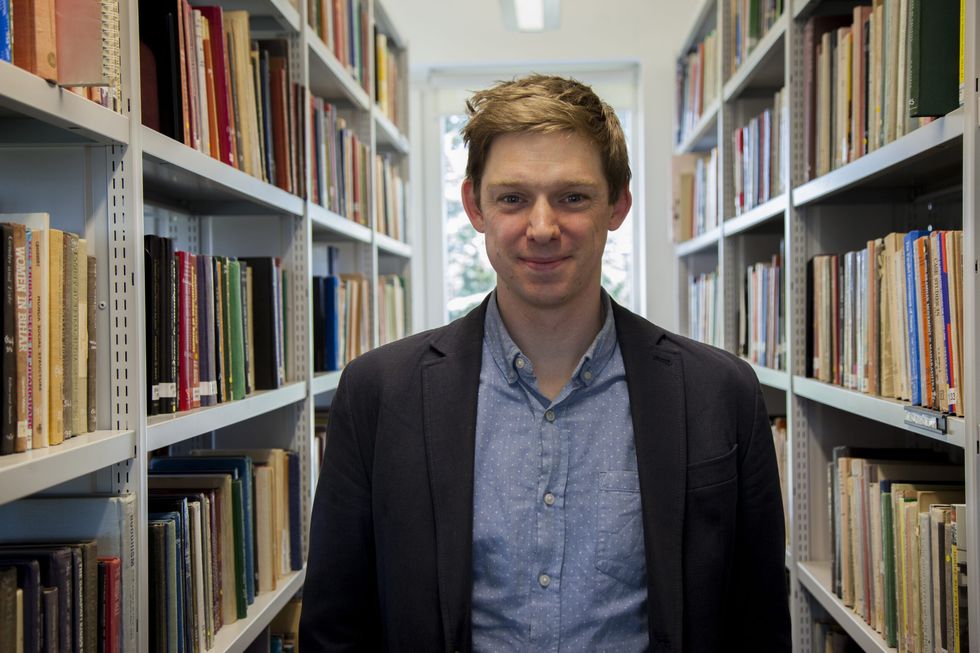
Anderson said: “Certainly, a lot of the groups I’m writing about have a very large representation from Gujaratis. You could go further and say Gujaratis of east African heritage.”
He has found links between various Hindu groups in Britain – such as the National Hindu Students’ Forum or Sewa Day.
“They may be institutionally quite separate. But there are lots of instances where certain individuals are involved in more than one of these groups or at different times. So, there is a lot of interaction between different organisations over time.”
He added: “Actually, the focus of the book is predominantly about what happened before 2014. The story starts with the establishment of Hindu nationalists groups, such as the Hindu Swayamsevak Sangh, in Kenya and Uganda (in the 1940s) and then over in Britain from the 1960s.”
The author recalled a landmark moment: “In 2015, Narendra Modi spoke at Wembley Stadium, and tens of thousands of people turned up, some of whom may not have been particularly interested in the politics or ideology of Hindu nationalism, but others certainly were.
“People suddenly noted that there was this network of groups, and the prevalence of particular forms of political identity that had spread among the Indian diaspora in Britain as well as elsewhere.
“What I’m interested in is how this came about. What’s the context for it? It was certainly not a phenomenon that emerged out of thin air.”
Anderson emphasised that not all members of the Indian diaspora subscribe to Hinduvta: “This is simply not the case. In fact, there’s a lot of resistance to Hinduvta in the Indian diaspora.
“There’s a long history of radical and progressive politics, of solidarity across communities, of secularism, of all sorts of progressive traditions, which have both implicitly and quite explicitly rejected Hinduvta.”
That would certainly appear to be the case among Indian academics in the UK, especially in such institutions as the London School of Economics, King’s College London, Oxford and Cambridge, the School of Oriental and African Studies and other universities.
Anderson’s response is careful and nuanced when considering the attitudes of second and third-generation Indians, born and brought up in the UK.
“There are grandparents or parents who migrated here and who still maintain an important link with India,” he replied. “That does not necessarily dilute their sense of Britishness. That’s something I find fascinating. Why is it that young British Indians might maintain a kind of political connection to the homeland in spite of never living there, but also having a close connection to the politics of the UK? That’s based on a desire to maintain a kind of cultural identity, as much as anything else.
“People want their children to maintain a connection to their culture.”
Anderson begins his book by stating: “In 1966, the first shakha (branch) of the Hindu Swayamsevak Sangh – the overseas wing of the core Indian Hindu nationalist organisation, the Rashtriya Swayamsevak Sangh (RSS) – was established in Britain.
“Less than 50 years later, in 2014, Narendra Modi led the Bharatiya Janata Party (BJP) to a dramatic election victory in India that would transform the political landscape of the world’s largest democracy. This followed a campaign during which the Indian diaspora, and particularly the expatriate Hindu nationalist movement, played an unprecedented and significant role.
“Although not concerned specifically with diasporic support for the BJP, this book considers the development of Hindu nationalist organisations in Britain and elsewhere in the Indian diaspora in the interceding years. Hindu nationalism is a majoritarian, conservative and militant political ideology and ethno-religious movement that rejects pluralistic secularism and is ascendent in contemporary India.
“The central question the book explores is how and why this movement and ideology became popular and influential among India’s diaspora in the years since independence in 1947.”
He added: “Historically, Hindutva has often, but not always, manifested in involvement with the Sangh Parivar – the diverse ‘family’ of organisations, usually led by upper-caste Hindus (although ostensibly seeking cross-caste unity), that emanates from the principal Hindutva institution, the RSS (National Volunteers Corps). The RSS is one of the largest volunteer-based institutions in the world, and often described as ‘paramilitary’, with perhaps up to six million members (estimates vary considerably and there is no membership data).”
According to Anderson, “Hindu nationalism has evolved into a major movement that has not only transformed the socio-political and cultural landscape of India, but also has spheres of influence across the world, thanks in large part to India’s substantial diaspora.
“The Hindutva of the diaspora, however, is not simply a lobbying force, nor a carbon copy of the movement in India. While it is closely linked to Hindu nationalism in the homeland, it is inaccurate to think just in terms of being ‘transplanted’ (a trope frequently, but often erroneously, used to understand diasporic culture).
“Global Hindutva is often the product of strategies of expansion and sustained co-ordination from India. Many aspects bear a striking similarity to the movement in India.
“There are significant divergences and idiosyncrasies to Hindu nationalist organisations and praxis abroad. This represents a ‘vernacularisation’ or ‘translation’ of Hindutva, in which it evolves and adapts to local contexts and requirements.”
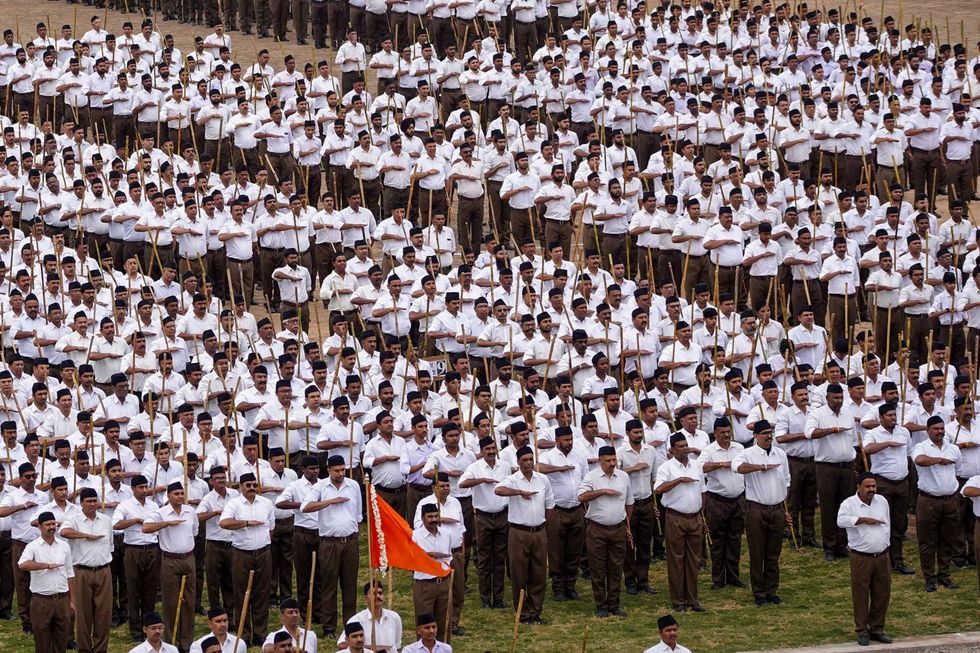
Anderson refers to the communal troubles in Leicester: “Digital misinformation was also deemed to have played a role in the unprecedented outbreak of communal tension and violence in Leicester during August and September 2022.”
He has commented on “the extent of the internet’s influence on Hindutva’s recent rise, and the imbrication of the diaspora in this dynamic.
“Although ‘cyber-Hindutva’ has not been explored in a dedicated chapter, this book has throughout considered the significance of online spaces in the spread and articulation of global, transnational Hindutva.”
He has discussed the political allegiances of British Hindus: “Left-wing parties have historically been seen as less aggressively anti-immigrant, and more multiculturalist, than those on the right. There are, however, signs this allegiance is shifting, especially in terms of the Indian diaspora’s support for the Conservative party in Britain. Much of this mainstream politics has become infused and entwined with the politics of Hindu nationalism.”
Anderson observed: “Hindu nationalism has had an indelible impact on the political and social landscapes of Britain and other countries of the Indian diaspora that stretches well beyond the reach and influence of the Sangh Parivar.
“Hindu nationalism’s global footprint is greater, and more widely acknowledged, than ever before. This is underlined most conspicuously through the frequent international trips that prime minister Narendra Modi undertakes, during which he is met by crowds of enraptured devotees in a puzzling blend of choreography and undeniable fervour.
“Although for some, his global allure may be simply as India’s leader, the adoration of Modi is inextricable from his politics. To the delight of many, but consternation of others (including within the Hindu nationalist movement), his autocratic pre-eminence makes him virtually a synecdoche for Hindutva.”
In the end, Anderson urged readers to keep a sense of perspective: “Hindutva should not be viewed as a dominant form of political identity for Indians overseas, and is often the preserve of a relatively small minority.”
Hindu Nationalism in the Indian Diaspora: Transnational Politics and British Multiculturalism by Edward TG Anderson, published by Hurst. Paperback £30.
















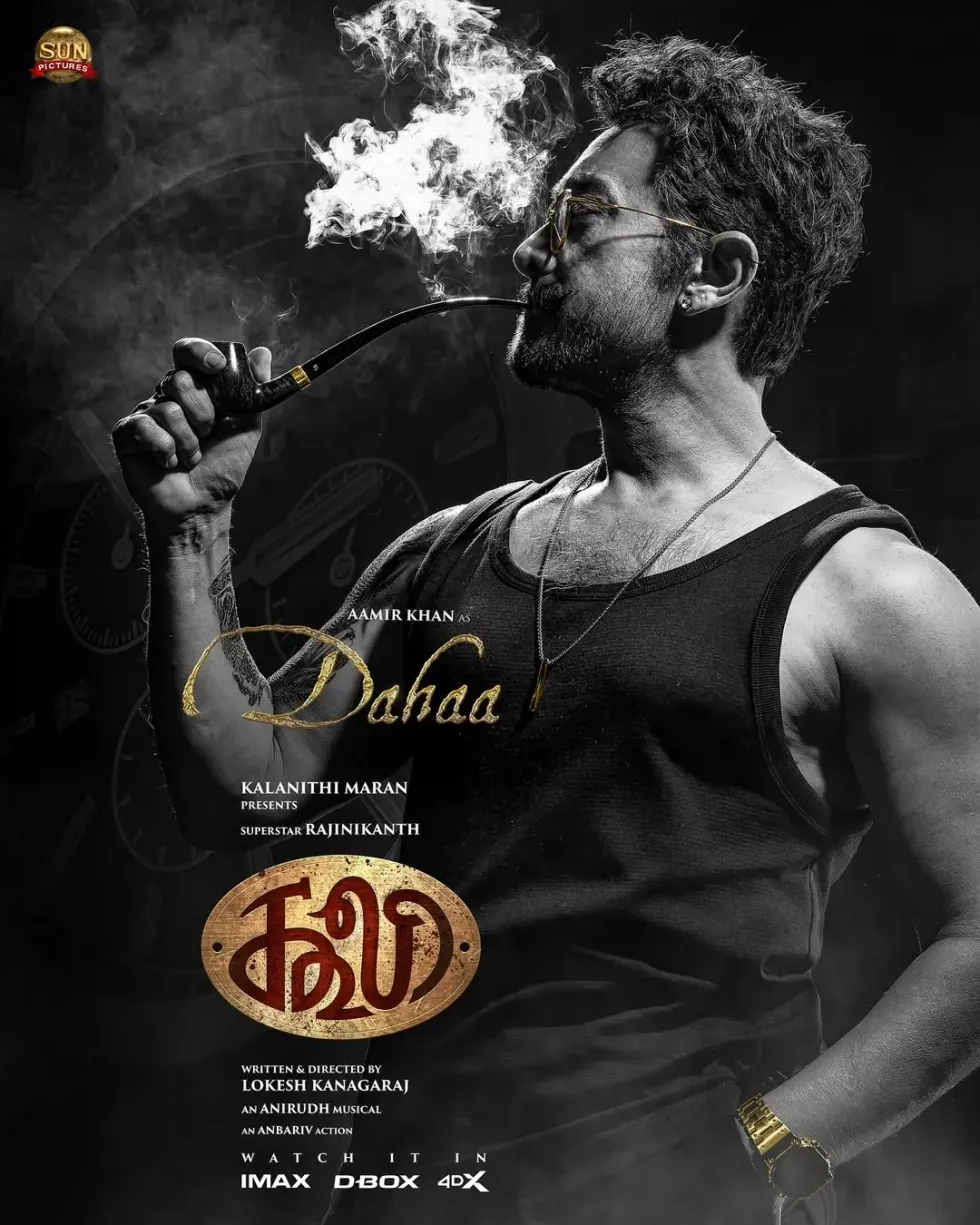 Aamir Khan sports a rugged look with pipe and vest in Coolie cameoInstagram/
Aamir Khan sports a rugged look with pipe and vest in Coolie cameoInstagram/

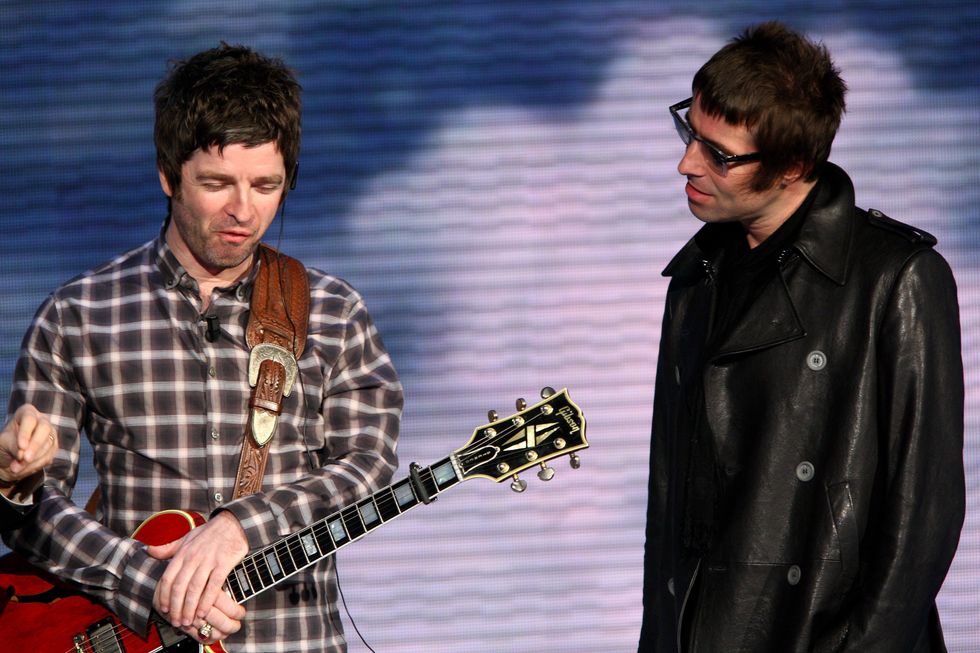 Noel Gallagher and Liam Gallagher at "Che Tempo Che Fa" Italian TV ShowGetty Images
Noel Gallagher and Liam Gallagher at "Che Tempo Che Fa" Italian TV ShowGetty Images